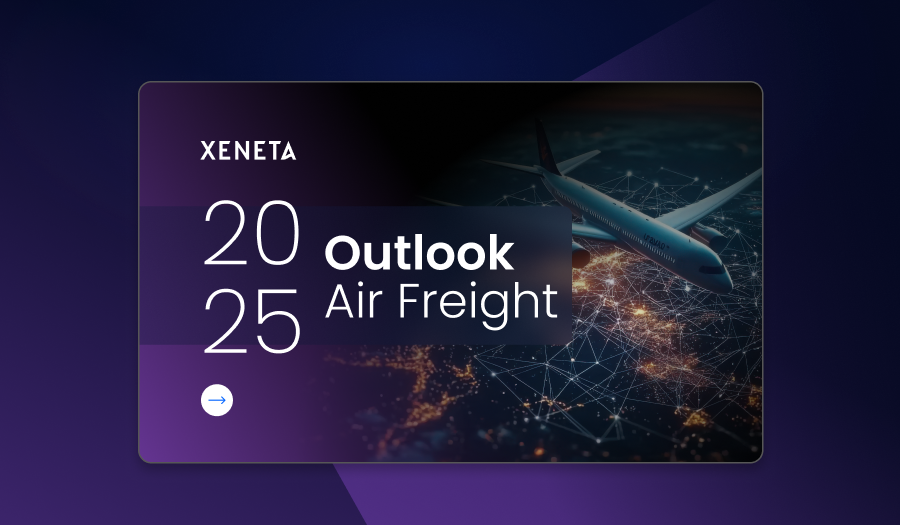Even post-pandemic, businesses are faced with a rapidly changing global environment where large macroeconomic events seem to be waiting around every turn. Remaining competitive in today’s market means responding to these events in the right way, at the right time.
For logistics professionals, this equates to an agile supply chain — one that utilizes market intelligence in the form of trusted insight and data analytics to remain proactive in seizing opportunities, managing costs, understanding potential threats and determining the optimum trade lanes. Regardless of the shipper or forwarder size, benchmarking and freight intelligence should always be part of their supply chain planning.
According to Bain & Company, benchmarking aims to find examples of superior performance and understand the processes and practices driving that performance. Identifying and understanding others’ success is the key way for companies to improve their performance; by tailoring and incorporating these best practices into their operations.
What is Freight Benchmarking?
Succinctly put, freight benchmarking is the comparison of the ocean freight costs you pay against actual, real-time contracted market rates. This process is done by reviewing your freight rate history and the carriers used in relation to the current market rates for specific trade lanes and port pairs.
Benefits of Freight Benchmarking
Complete Analysis
Freight benchmarking allows you to have a complete analysis of spot vs. long-term contracted rates by measuring freight averages over time. If properly analyzed, a freight benchmarking study will provide valuable insight into the competitiveness of your company's actual freight rates.
Enhancements
Negotiate significant enhancements to your carrier rate agreements while also identifying the rates you need to maintain your customers and be competitive in the market.
Understanding
Understand, visualize, control and standardize accessorial charges and other surcharges across your customer base.
Varied Applications
Apply benchmarking across your freight business units, local and regional markets, multimodal transport systems, and trade lanes to:
- Identify and avoid potential root cause issues
- Evaluate your contracts, service providers and practices
- Promote cost savings for you and your customers
Top Market Intelligence for Logistics
Market intelligence can be defined as a set of external data that a company uses to drive decision-making. Good general market intelligence for freight/logistics companies includes a breakdown of who is who in the market (i.e., carriers or your competition), what are their service routes, patterns of trade, the rates in the market, volatility, stability, sustainability, etc. Internal & external pressures are high when it comes to improving costs, retaining high service levels, satisfying customers with the available infrastructure and ensuring supply chain continuity.
External forces include the need to keep up with an ever-changing market, understand why things are changing and navigate these trends successfully. Internal forces include the need to understand and manage the freight spend—how it’s being allocated, to which partners and whether those partners provide the required value to the company and the freight spend allocation.
How to Apply Freight Market Intelligence to Operations
- Many shippers and forwarders use freight market intelligence to improve their freight processes (efficiency, time/ cost saving, customer relations) and proactively manage regulatory changes.
- Understand how the market shifts in terms of inventory levels—what needs to be maintained and how often order fulfilments may be required.
- Show new players which areas of the freight market they should enter and what the current market is like in that area.
- The same applies to established companies that don’t have business in a certain area and wish to learn about the potential risks/ROI before they invest.
- Identify the market rate for a certain zone/area, saving time in repeatedly securing rates from the carriers Identify who makes it to your core carrier list and who doesn’t, as the market impacts prices and performance.
Importance of Market Intelligence in Decision-Making
Decision-making doesn’t just apply to those made at the top—a local decision on which carrier to book your freight with can also make or break a company’s progress. Even this requires a marketoriented approach and should have the relevant intelligence at hand before being made. The right freight market intelligence should help gauge and identify potential problem areas both at a tactical- and operational level, including transportation fuel programs, carrier procurement cycles and payment terms, or broader supply chain factors.
Staying on Top of Ocean Freight Market Dynamics
When market intelligence is gathered correctly, and on an ongoing basis, shippers and forwarders will better understand the markets they are serving and, therefore, become proactive instead of reactive to the constant changes in the ocean freight market.
This is also where benchmarking comes in, as shippers gather data to determine if they are receiving fair rates, working with the best carriers and selecting the right ports (i.e., trade lanes where they could lower costs and/or reduce time in transit). Furthermore, intelligence provides either party with a much better understanding of contract terms.
Freight Market Intelligence: How to Identify Opportunities
While freight market intelligence is the best way to optimize existing supply chain processes, it also helps to identify new opportunities.
These include potential partners, new services and/or products and expansion into new geographies. Thanks to technology, much of this process—gathering and analyzing market intelligence—can be automated, leaving only the implementation to be completed.
With the right market intelligence informing a benchmarking process, shippers can determine how well they’re performing in relation to their peers, areas to gain a competitive advantage and the risk/reward of new business opportunities.
No matter the size of the shipper, benchmarking levels the playing field by allowing big and small shippers to compete on the same level, thus pushing their suppliers to do the same.
Want to learn more?
Sign up today for our upcoming monthly State of the Market Webinars to stay on top of the latest market developments and learn how changing market conditions might affect your contract negotiations.
PS: Missed the LIVE session? Sign up to get the full webinar recording.


-1.jpg)




